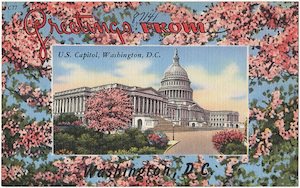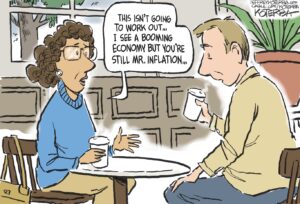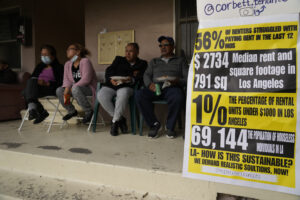Millennials: ‘You Can Take Your Government Service and …’
Members of the generation born between 1982 and 2003 want to change the world, but don't see public service as the way to do that. So who will that leave in charge?
As the U.S. careens toward another likely military engagement (this time in Syria), the economy continues to serve the rich first (and seemingly exclusively), and the lobbyist-fueled Washington political engine remains stalled by obstinacy, young Americans say they want to change the world — but not through conventional politics and traditional public service.
Veteran political journalist Ron Fournier reports at The Atlantic that Washington is facing a generational “brain drain” as the much-maligned millennial generation turns away from trying to change the trajectory of the U.S. government from within, a shift he fears bodes ill for the nation. If the best and the brightest shun taking roles in political leadership, then that leaves, well, the not-so-best and brightest waiting to take the reins from current political leadership. Which, come to think of it, hasn’t exactly been lighting up the Capitol with brilliance. But still.
Fournier writes that millennials, despite the perception by their elders that they’re “narcissistic, coddled, and lazy,” actually are more engaged with their world, and less isolated than their parents’ generation:
The largest and most diverse generation in U.S. history is goal-orientated, respects authority and follows rules. Millennials are less ideological than their Baby Boom parents (more on that later) and far more tolerant. In addition to famously supporting gay rights, polls show they are less prone to cast negative moral judgments on interracial marriages, single women raising children, unmarried couples living together and mothers of young children working outside the home. While their parents and grandparents preferred to work alone, young Americans are team-oriented and seek collaboration. Wired to the world, they are more likely than past generations to see the globe’s problems as their own. Millennials are eager to serve the greater community through technologies, paradoxically, that empower the individual.
Speaking of technology, Millennials witnessed, embraced, and in some cases instigated massive disruptions of the music, television, movie, media, and retail industries. The most supervised and entitled generation in human history, they have no patience for inefficiency, stodgy institutions or the status quo. Consider what they could do to politics and government.
But they have no intention, speaking broadly, of going there. They do want to work to improve the lives of others; in one survey, they reported that improving their community mattered in their job selection almost as much their salary level.
But government service isn’t the path. Fournier visited a high school class in suburban Washington, D.C., that included the offspring of political leaders. Most of the students were already involved in community service, from volunteering at food banks to tutoring to teaching English to non-native speakers. Fournier asked how many contemplated a career in politics or government. “Not a hand went up. No chirping. Nothing — the only noise in the abruptly silent room was the electronic hum of a fluorescent light. Finally, Shayan Ghahramani, a student, whispered, ‘Is this a joke?’ ”
How deep is the disengagement? I spent two days at Harvard, and couldn’t find a single student whose career goal is Washington or elective office. One wouldn’t expect to hear this at the Kennedy School of Government. “Government and politics,” said graduate student Sara Estill, “holds little or no attraction for us.”
John Della Volpe, director of polling at Harvard’s IOP, said there was a moment between the reelection campaigns of George W. Bush and Barack Obama when the case could have been made to Millennials that government is transcendent. “But instead, they came of age in a period of polarization and gridlock,” said Della Volpe, who is otherwise sympathetic to Obama. “The president they supported could not overcome it.”
“Politics just doesn’t seem relative to a lot of us and our world. Results are important to us, and sadly, politics isn’t a place for results.”
Kennedy School grad student Chike Aguh told me: “Politics just doesn’t seem relative to a lot of us and our world. Since the Great Society, tell me one big thing that has come out of Washington. Results are important to us, and sadly, politics isn’t a place for results.”
—Posted by Scott Martelle
.
Your support matters…Independent journalism is under threat and overshadowed by heavily funded mainstream media.
You can help level the playing field. Become a member.
Your tax-deductible contribution keeps us digging beneath the headlines to give you thought-provoking, investigative reporting and analysis that unearths what's really happening- without compromise.
Give today to support our courageous, independent journalists.








You need to be a supporter to comment.
There are currently no responses to this article.
Be the first to respond.